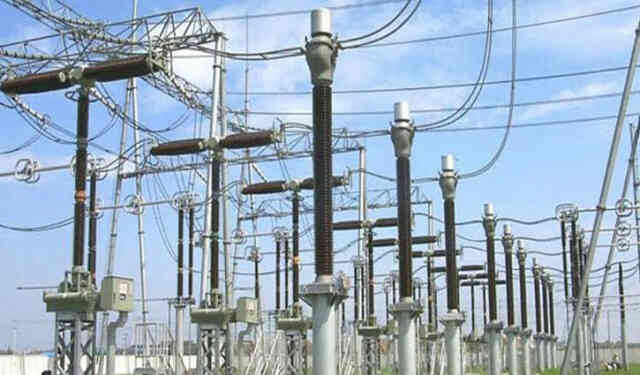

DHAKA, Nov 19, 2025 (BSS) – Policymakers, business leaders and energy specialists today underscored the urgency of long-term policy predictability, modern regulation and a coherent national energy vision to attract robust domestic and foreign investment into Bangladesh’s power and energy sector.
They agreed that Bangladesh must adopt decisive policy and regulatory measures to ensure reliable, competitive and sustainable power to support industrial growth and national development.
The speakers made the observations at a panel discussion titled “Conducive Policy Environment for Catalyzing Private Investment in Power Sector”, held as part of a high-level dialogue on “Enabling Bangladesh’s Growth and Prosperity: Developing a Sustainable Power Sector Investment Climate” held at a city hotel.
The event was jointly organized by Policy Exchange Bangladesh and the Economic Reporters Forum (ERF), with support from EMA Power. Former BKMEA President Md Fazlul Hoque moderated the session, while DFDL Partner Shahwar Nizam also spoke.
Speaking at the discussion as a guest of honour, Dr Mahdi Amin, Adviser to BNP’s Acting Chairman Tarique Rahman, said energy security remained a foundational pillar of economic growth, industrialisation and employment.
“For many years, industries have suffered from shortages of energy, gas and even water. Despite billions of dollars invested, energy security remains one of the largest concerns,” he said.
He said past experiences showed that some mega projects suffered from “a culture of impunity,” stressing that future policy must be transparent and sustainable.
Dr Amin said his party’s energy vision emphasizes a balanced mix of solar, wind, waste-to-energy, nuclear, oil, coal and gas, with a strong focus on domestic resource exploration, including opportunities in the blue economy.
He said the future energy strategy should be private-sector-led and aligned with economic liberalization principles that historically attracted foreign direct investment.
“We want a culture where foreign investors can come through deregulation and one-stop services, with policies that promote meritocracy, fairness and transparency,” he said.
Amin emphasised the need to priorities stalled industrial zones lacking power and infrastructure and highlighted the potential of waste-to-energy solutions for both households and industries.
“Policies must be made with multilateral stakeholder engagement—experts, civil society, academia and industry,” he said, adding that sustainability and accountability must guide future reforms.
Metropolitan Chamber of Commerce and Industry (MCCI) President Kamran T Rahman said Bangladesh urgently needs reform in three critical areas—policy predictability, regulatory modernization and financial sustainability—to unlock future private investment.
“We have an installed capacity of around 28,000 to 29,000 MW, yet we can’t even use half of it due to a weak grid, costly fuel and idle plants,” he said.
Rahman said investors—both domestic and foreign—require “long-term visibility” regarding tariff pathways, fuel mix plans and procurement processes.
“Frequent changes have created uncertainty. Investors want to see what is coming next,” he said, stressing the need for strict adherence to a consistent and integrated energy and power master plan.
He called for empowering an autonomous regulator, expanding competitive bidding, streamlining approvals and introducing a one-stop service for private investors. “No private investment will flow unless the sector’s financial health is credible,” he said.
Bangladesh Garment Manufacturers and Exporters Association (BGMEA) President Mahmud Hasan Khan said long-term pricing predictability was vital for industrial competitiveness.
“Price is very important, but we need the policy for at least three to five years. We set up factories based on government assurances, but often when we are about to begin operations, the pricing policy changes,” he said.
Khan also urged the government to address tax anomalies affecting rooftop solar expansion. “Panels and inverters face only one percent duty, but related components face more than 50 percent. Our members face problems with NBR and customs even when policies look favourable on paper,” he said.
On the emerging merchant power purchase agreement (PPA) framework, he said the initiative was promising but still unclear. “The wheeling charge was increased even before the policy began. Billing modalities are yet to be finalised,” he added.
Energy expert and Independent University Bangladesh Vice Chancellor Dr M Tamim cautioned that Bangladesh could face energy shortages by 2029 despite current overcapacity. “We have renewable targets, but no action plan,” he said.
He said long-term fossil fuel commitments would shape the energy mix for decades, even as domestic gas reserves decline.
He said within two to three years, the country is likely to face a major gas crisis. “Industry, transport and households all depend on gas, but I see no plan for how to switch sectors,” he added.
Dr Tamim highlighted limitations in LNG import capacity, inadequate local exploration and the absence of a clear roadmap for nuclear and emerging small modular reactor technologies. “The greatest challenge for the next government will be the energy sector,” he said.